A rich brew: Singapore’s buzzing coffee scene
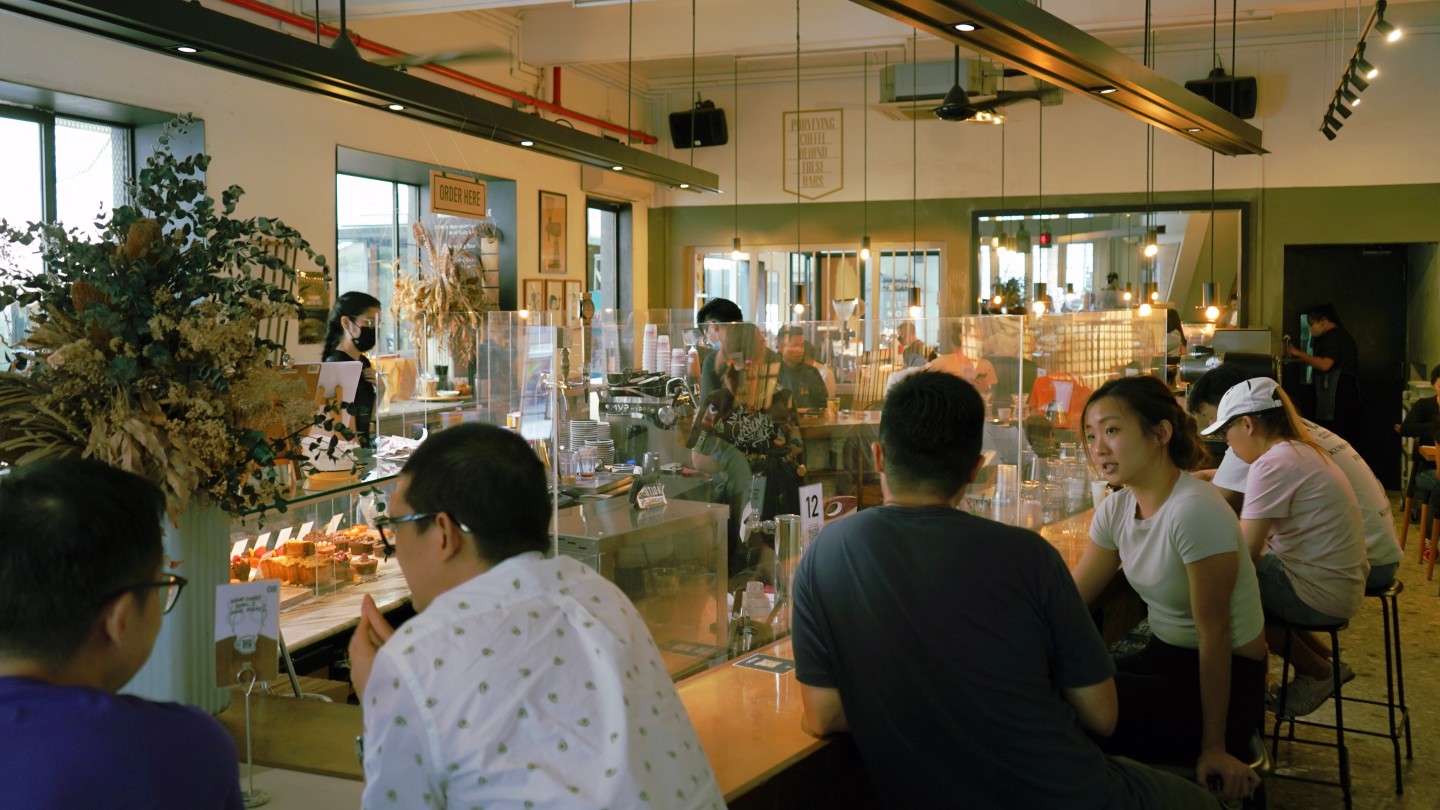
Roula Khalaf, Editor of the FT, selects her favourite stories in this weekly newsletter.
This article is part of a new guide to Singapore from FT Globetrotter
As an Australian, I am predisposed to turning my nose up at coffee in most other countries. (Caffeine is king in Australia, and our cultural obsession with coffee is one of our best known exports.)
This trait was borne out shortly after moving to Singapore, when a friend invited me out to try one of the city-state’s traditional coffee shops. When the kopi, as coffee is called here, was deposited in front of me I looked down aghast.
“Is that a pad of . . . butter in there?” I asked incredulously.
Yes, my friend assured me with delight — kopi is black coffee with sugar, made with beans roasted with butter — and it’s rounded off with condensed milk!
I had never tried anything like it before and while it was too sweet for my palette, it is worth trying if you're in town. Since I moved to Singapore a year ago, I have delighted in exploring Singapore’s thriving coffee culture, a clashing of east and west, of new and old.
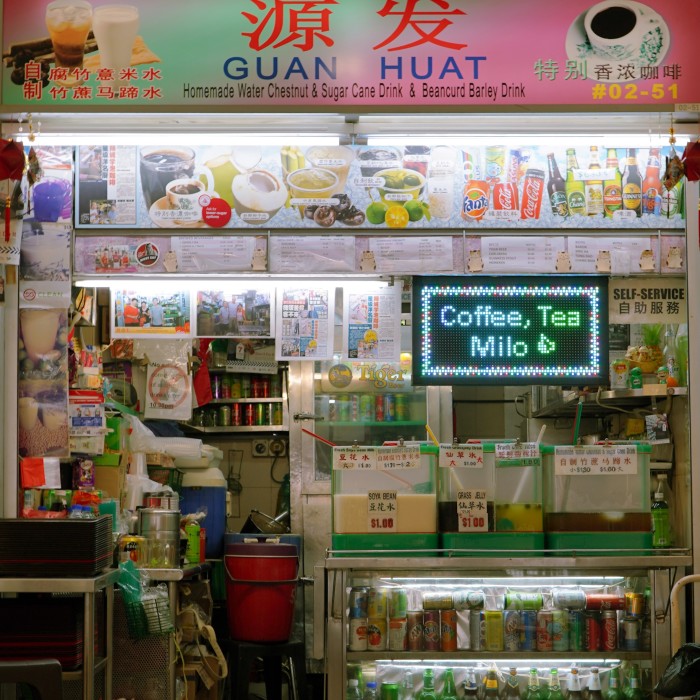
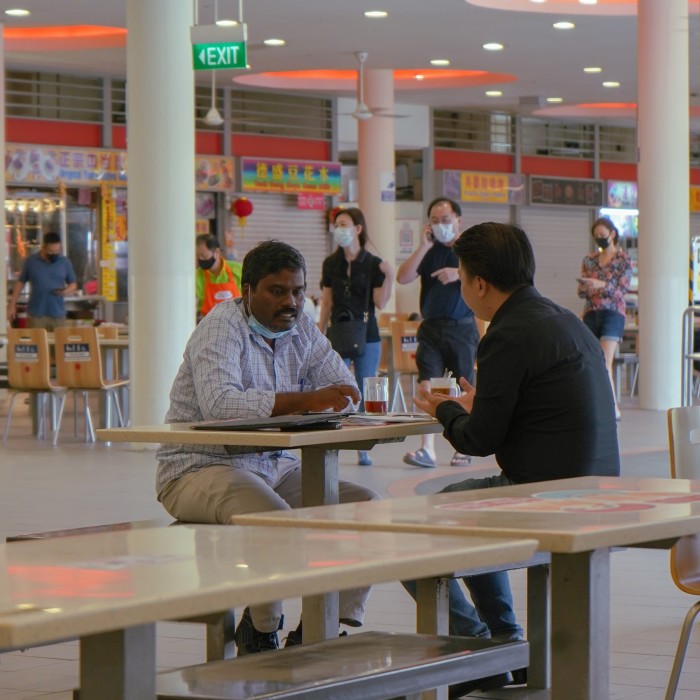
Singaporeans love coffee, and similarly to Europe or Australia, sitting around and discussing life’s issues over kopi in hawker centres or one of the many kopitiams (traditional coffee shops) is embedded in the city’s culture.
Kopi culture can be traced back to Singapore’s colonial past — the arrival of the Portuguese, Dutch, French and British — when coffee shops sprung up to serve Europeans here. It is brewed with a large coffee-sock filter and drunk black or with whatever additions you ask for. There are more than 100 ways to serve it, all with specific names: Kopi O is with sugar but no milk, Kopi C is with evaporated milk and sugar, Kopi Gao is stronger . . . the list goes on.
Then, of course, there is the other key ingredient: toast. Singaporeans worship at the altar of toasted bread, ideally slathered with coconut jam (kaya).
Beyond the kopitiams, there is also a newer, speciality-coffee scene that too is uniquely Singaporean.
Younger locals or permanent residents who have travelled, studied and worked overseas have been bringing back their barista expertise gained abroad and opening coffee shops since the late 2000s. These cafés, often found in Singapore’s malls or government-housing estates (known as HDBs), brew with beans from all over the world and the owners are passionate about their craft. With my Antipodean coffee obsession, I can assure you that what they serve is very good. Flat whites and macchiatos are commonplace, or frequently you are given the option of “white” (with milk) or black and then choose your cup size.
Most of my suggestions here are new-style coffee shops, but I have included one of the city’s best-known kopitiams, based on recommendations from expert locals. And while Singaporeans take their food very seriously, I have mostly featured cafés and shops that focus almost exclusively on coffee. (Check out our other FT Globetrotter features for dining recommendations.)
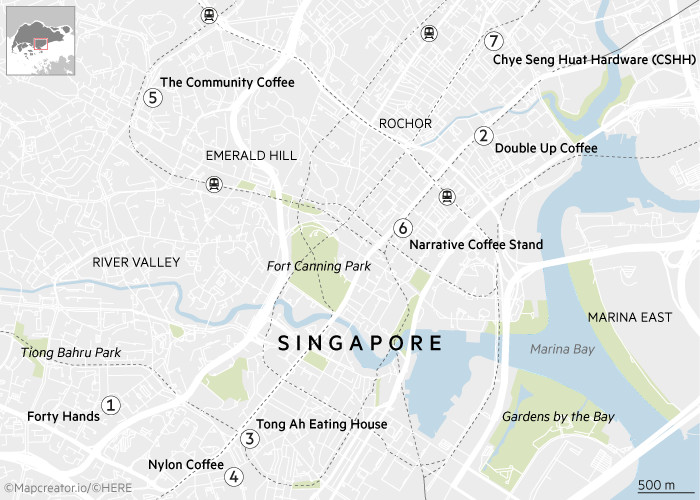
Singapore has managed to keep the Covid-19 pandemic under control for several months, so there’s little risk of any of these places being closed, but do check before you go. The only rule to be aware of is to not remove your mask until you have food or drinks on your table, and check the current government guidelines for group sizes.
Double Up
7 Jalan Klapa, Singapore 199319
Good for: Keeping cool while sipping coffee, thanks to the largely concrete setting
Not so good for: There’s not much in the way of tables, you will be sitting on benches with your back against the wall
FYI: The café does not offer much to eat (Website; Directions)
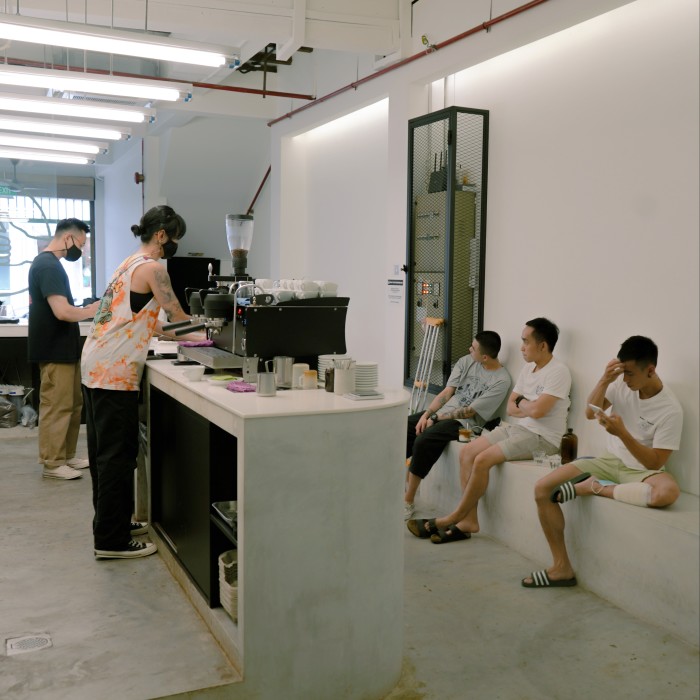
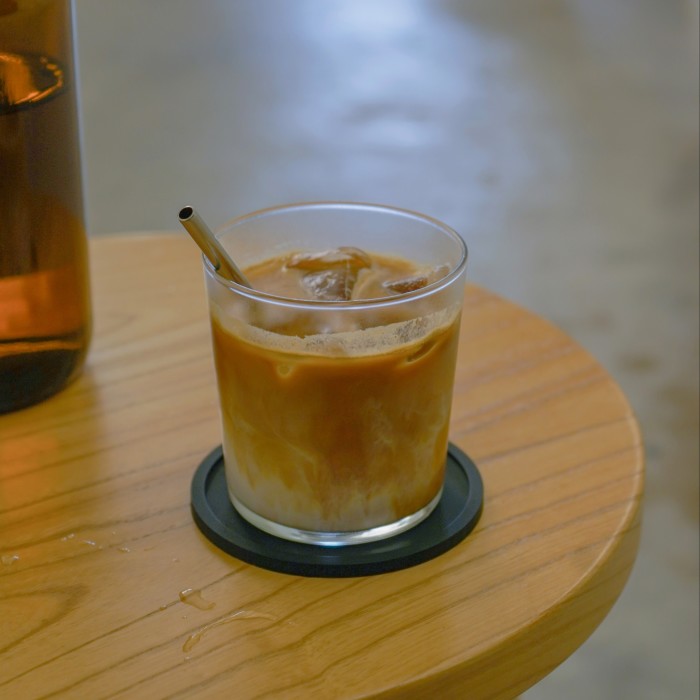
When I walked into Double Up, I mistakenly thought it was about to close down. The hole-in-the-wall café, located in a shophouse in Bugis, the arts and heritage district, had very little seating and an unfinished feel. Customers sit mainly on a long concrete bench running along the inside of the shop with their back against the wall.
Such minimalism is the aim, according to its local owners Mervin Lim and Fu Ru-ai. This place is strictly about the coffee, so much so that non-coffee beverages and the small rotating menu of pastries and cakes they offer are listed under “pleasure” (because drinking coffee is serious, while other drinks are enjoyed for fun) and “chow” respectively on the menu. You can choose your “spro” — meaning espresso — and have it with water (black) or with milk (much like a flat white).
Tong Ah Eating House
35 Keong Saik Road, Singapore 089142
Good for: Traditional Singaporean kopi
Not so good for: Western-style food and coffee
FYI: Make sure you get the kaya toast (Website; Directions)
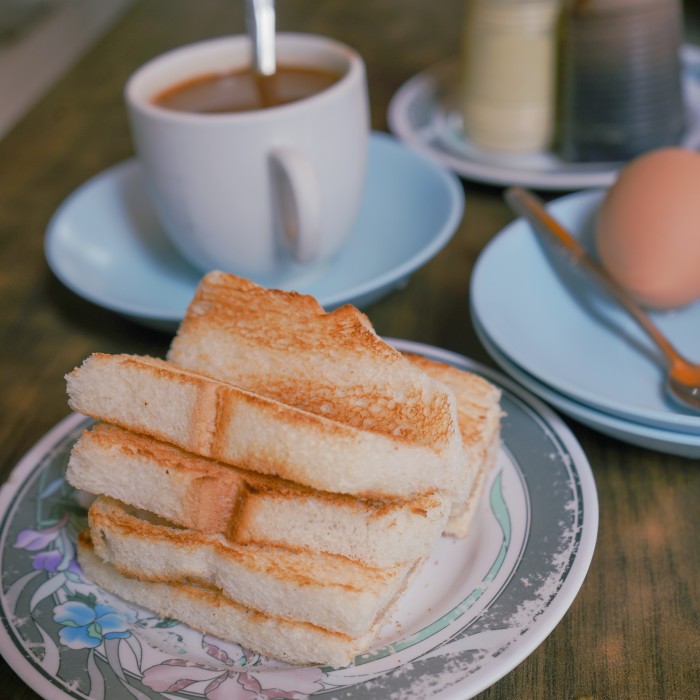
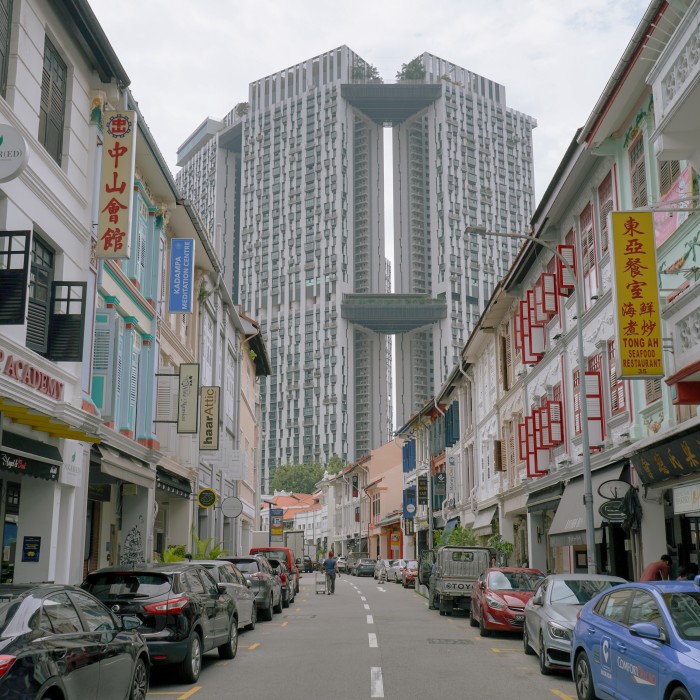
Tong Ah is an institution in Singapore. Located on busy Keong Saik Road, this bustling, no-frills coffee shop has been around since 1939 and is famed for its crispy kaya toast (two slices of toast with butter and coconut jam, served alongside coffee and soft-boiled eggs).
An order of toast comes with a cup of traditional Nanyang-style kopi, or teh (tea), which the owners have sourced from the same suppliers in Sri Lanka for decades. You can also order your toast to be extra crispy, which means the bread is grilled (and has the char scraped off) three times, when it takes on a biscuit-like quality.
Tong Ah was originally located in an Art Deco red-and-white shophouse, though it relocated a few doors down several years ago. Despite the move, it has maintained its old world charm. Seating is around large, traditional tables, the clientele are predominantly locals and service is quick and efficient.
Forty Hands
78 Yong Siak Street, Singapore 163078
Good for: Food menu
Not so good for: A cheap drink. It is on the expensive side
FYI: One of the few cafés to open before 8am (Website; Directions)
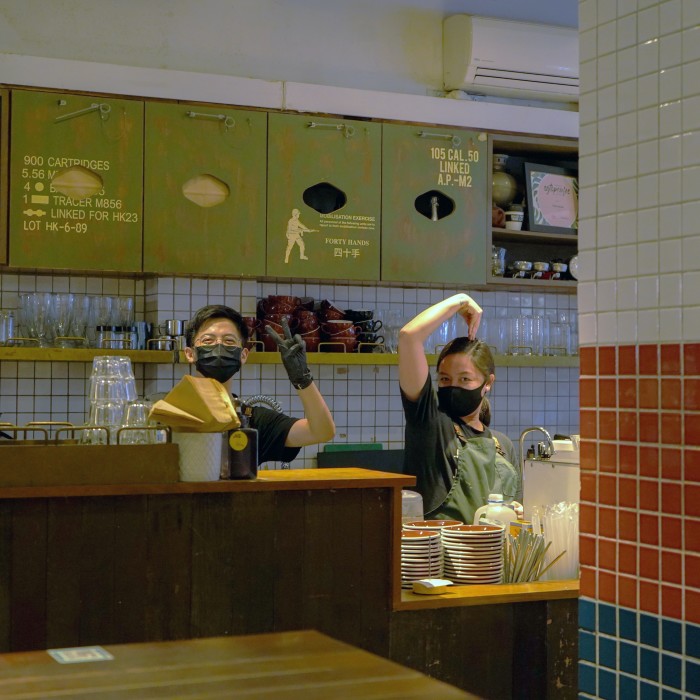
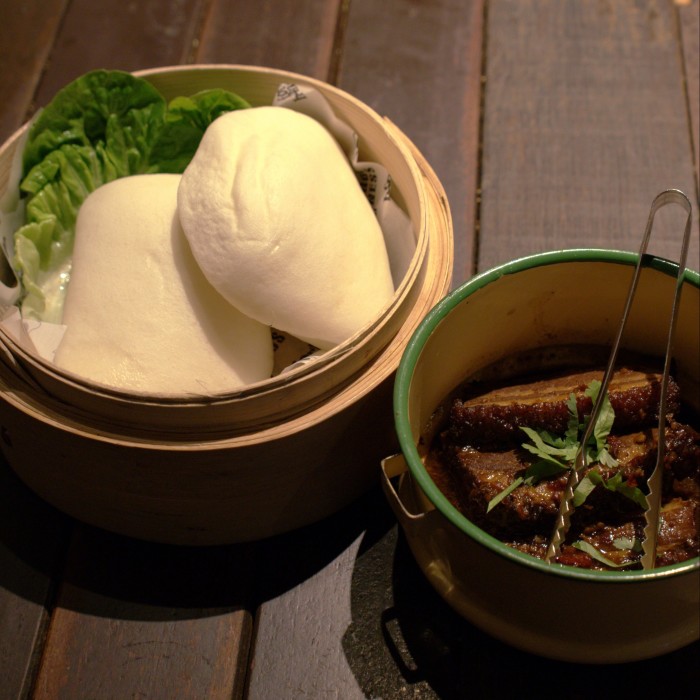
I stumbled across Forty Hands by accident on the day we moved into our flat. Sweating, exhausted from unpacking and hungry, we fell upon their kong bak pau (steamed buns with braised pork in soy sauce) and falafel pita sandwich and thought it was one of the best meals we had ever tasted.
And the coffee! It was an unexpected surprise to find something similar to what we were used to in Australia.
Taking its name from the 40 hands they say it takes to produce coffee from bean to cup, this industrial-style café was one of the earlier speciality-coffee shops to blaze the trail in Singapore. It was established in 2010 by Australian Harry Grover, who has since gone on to open more cafés and launch a wholesale coffee-roasting business.
Located in the Art Deco Tiong Bahru neighbourhood, Forty Hands stands out for its wide-ranging menu: all-day Aussie-style breakfasts (smashed avocado on toast with eggs and pistachio dukkah), salads that manage to be tasty as well as healthy (the Banh Mi bowl) or a heart-attack sandwich (the Cubanos). There are a lot of expats living in Tiong Bahru and the queue on the weekends is often out the door.
Nylon Coffee
4 Everton Park #01-40, Singapore 080004
Good for: The stand-up bar has a cool European vibe
Not so good for: Finding a quiet table to sit with a laptop or book for hours
FYI: Nylon was renovated last year to include more seating (Website; Directions)
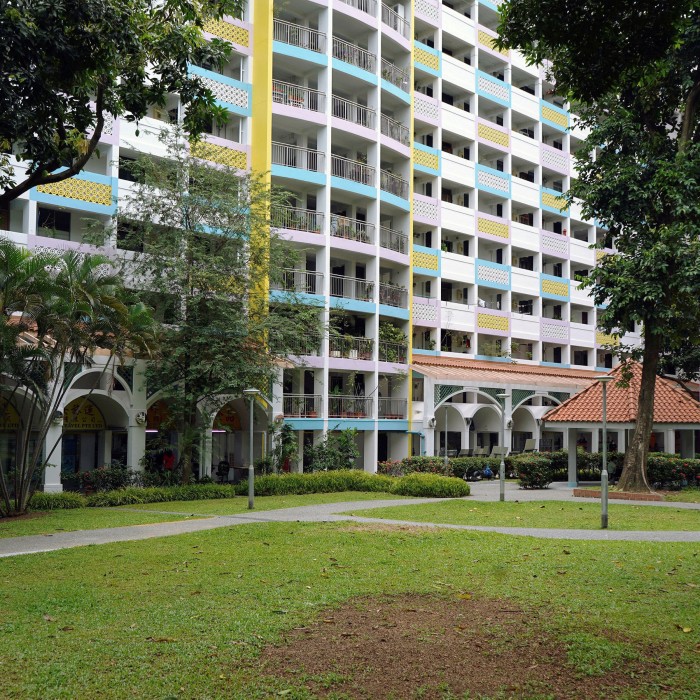
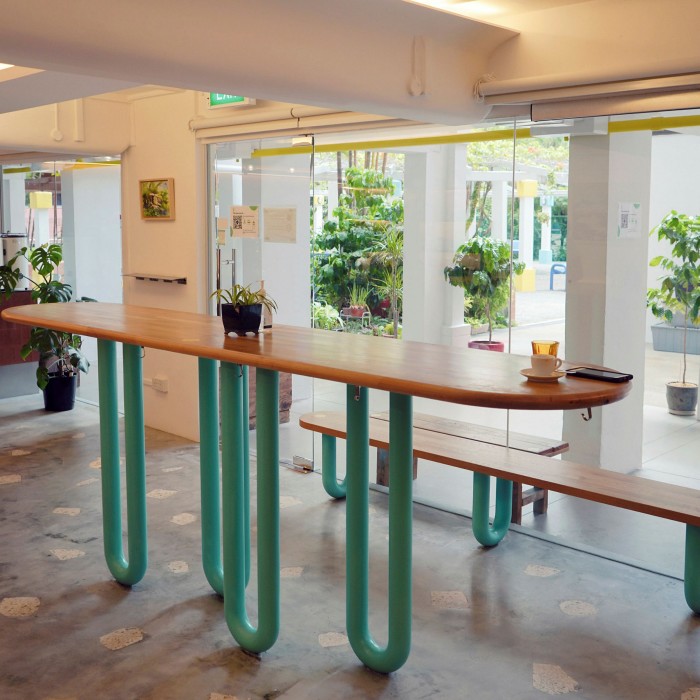
Not too far from Tong Ah is Nylon Coffee, nestled in one of Singapore’s HDB complexes at Everton Park. Singapore’s multicultural society is heavily influenced by these affordable public-housing estates, which are home to people from many different countries and backgrounds. HDBs come in varying shapes, sizes and designs, but they have in common a community centre where people can socialise, and often there are retail spaces on site too, as is the case with Nylon.
Started by Singaporean couple Dennis Tang and Jia Min Lee, the café is small but has its own roastery around the back. Dennis and Jia Min drew inspiration from time spent in London and New York, as well as a trip around South America, where they established relationships with coffee producers in Brazil and Peru, and later travels in Ethiopia and Kenya. Nylon has a great Italian-style espresso bar where you can stand and chat away over coffee. Similar to Double Up, you choose white or black and then a cup size. Again, food is not the focus here, so eat before you go.
The Community
14 Scotts Road, Far East Plaza #02-94, Singapore 228213
Good for: Hands down, some of the best coffee in Singapore
Not so good for: Al fresco drinks
FYI: Team the visit with an exploration of Far East Plaza, one of the city’s quirky shopping malls (Website; Directions)
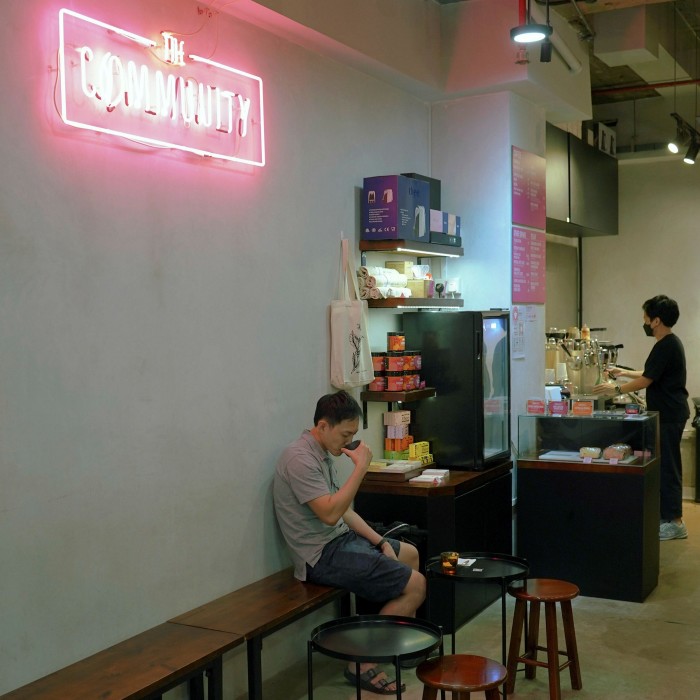
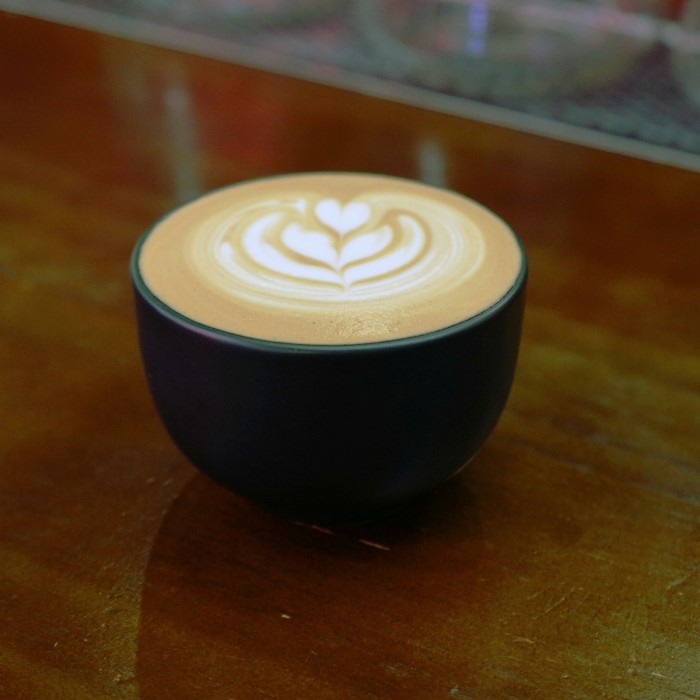
You haven’t properly seen Singapore if you haven’t explored one of the Orchard area’s warren-like shopping centres. I don’t mean the luxury malls offering Dior, Chanel and Tiffany, but the plazas with an eclectic mix of tailors, jewellers, hairdressers, fake designer-goods stores and wig shops. One such delight is Far East Plaza, where you’ll also find The Community Coffee, a popular caffeine hit with locals.
Located between what appears to be a now-shut jewellery shop and Solito Fashions and Tailors, the space is not very big, though it has managed to squeeze in a large communal table and a few other places to sit. The coffee is sourced from producers all over the world who emphasise transparency and social responsibility — and the flat white here is one of the best I have had in Singapore. But if you feel like sipping on something else, I recommend the house ginger beer, which offers the perfect amount of spice and sweetness.
There is also a limited food menu, which includes café staples such as pastries, toast and eggs. The atmosphere here is relaxed, and you will often see people typing away on laptops or taking in the plaza’s buzz.
Narrative Coffee Stand
Bras Basah Complex #01-05, 231 Bain Street, Singapore 180231
Good for: You can choose your beans
Not so good for: A hearty meal
FYI: The freshly made pastries are excellent (Website; Directions)
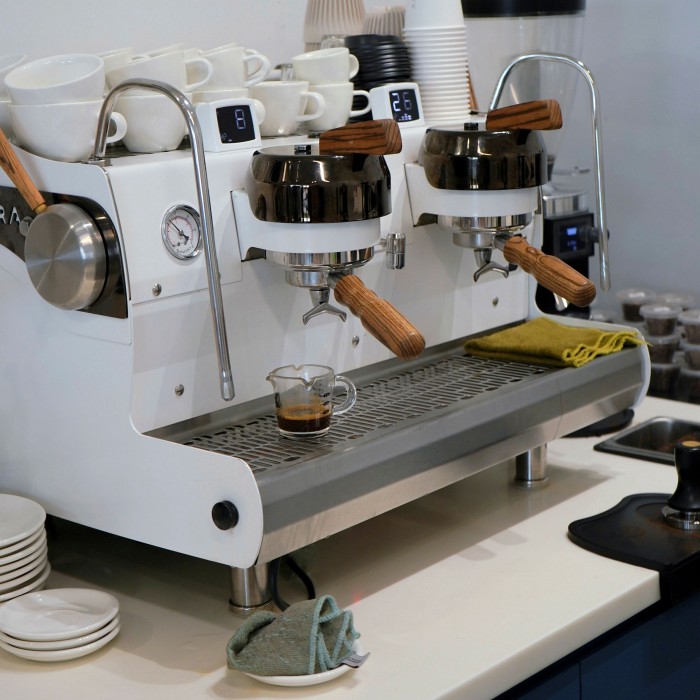
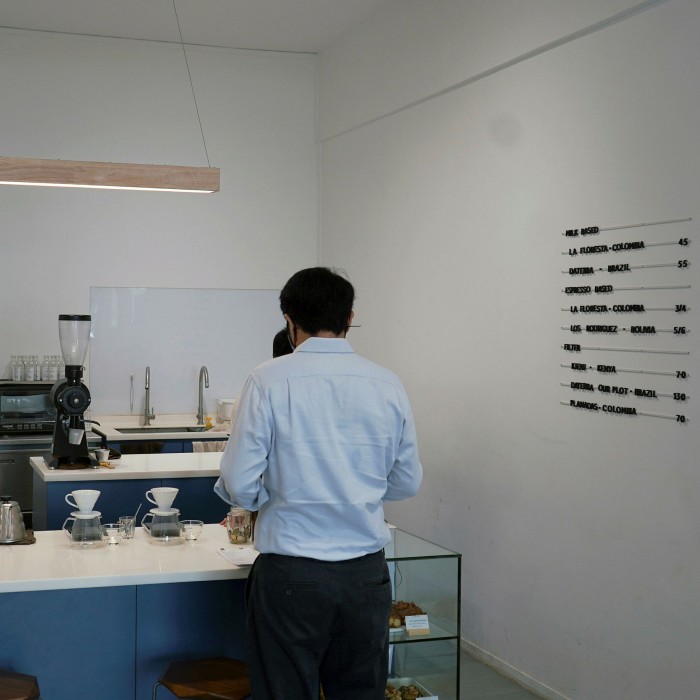
Narrative’s Scandinavian-style decor echoes the minimalist approach of Double Up and Nylon. Indeed, some of the beans are sourced sustainably from Scandinavia, where they are processed straight from the coffee cherry. When you order, you can choose from a menu of coffee beans, served to drink how you like. I recommend trying one of the fresh baked pastries made by a friend of the owner, Thong, who used to work at Nylon before opening his own space here.
Narrative is perhaps not a spot to hang out at for hours: the space is small and the tables are low, but the staff are friendly and have strong relationships with their regular customers, who are a mix of locals and expats. Plus the coffee — which is ground, tamped, brewed and served in front of you — is excellent.
Chye Seng Huat Hardware (CSHH)
150 Tyrwhitt Road, Singapore 207563
Good for: Outdoor seating
Not so good for: It’s not somewhere you can stroll to easily during your lunch hour
FYI: The name means “flourish again” — a tribute to the building’s hardware heritage (Website; Directions)
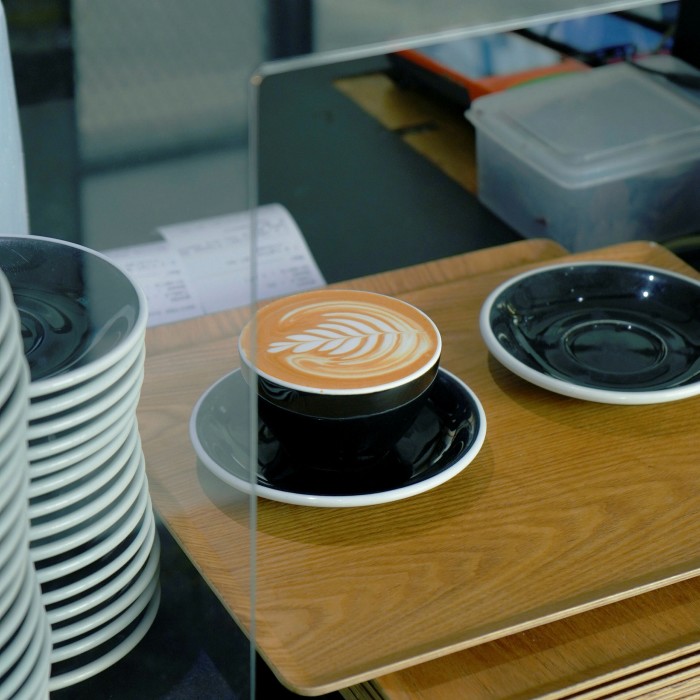
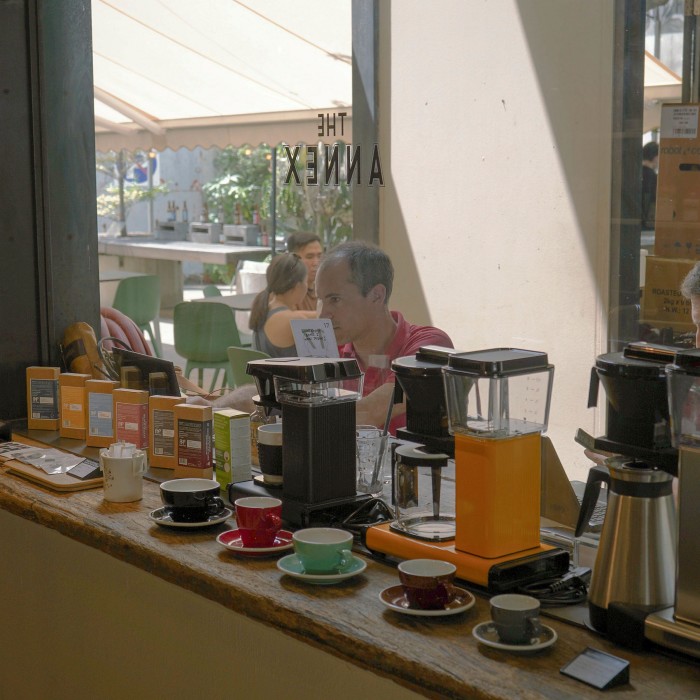
Don’t be put off by the name — CSHH adopted it from the former hardware store it now occupies. The neighbourhood in which it is located, Jalan Besar, was historically home to metal and hardware stores, and the shop’s name means “flourish again”. The beautiful Art Deco shophouse retains elements of the original interior, with a large polished central bar where you can watch your coffee being made, as well as plenty of indoor and outdoor seating.
This place is lively morning, noon and night. An all-day food menu offers favourites such as chicken soba, salmon don and chilli crab and mantou (Chinese steamed buns), and they sell craft beers and ciders too. CSHH’s parent company, PPP Coffee, provides and roasts the beans. As well as the café, the store has a roastery, a retail space where you can buy coffee products and the C-Platform coffee school, should you wish to become an expert yourself.
Photography by Siew Png Sim
What’s your favourite coffee — or kopi — shop in Singapore? Tell us in the comments
For more pieces like this, visit ft.com/globetrotter or follow FT Globetrotter on Instagram at @FTGlobetrotter
Comments